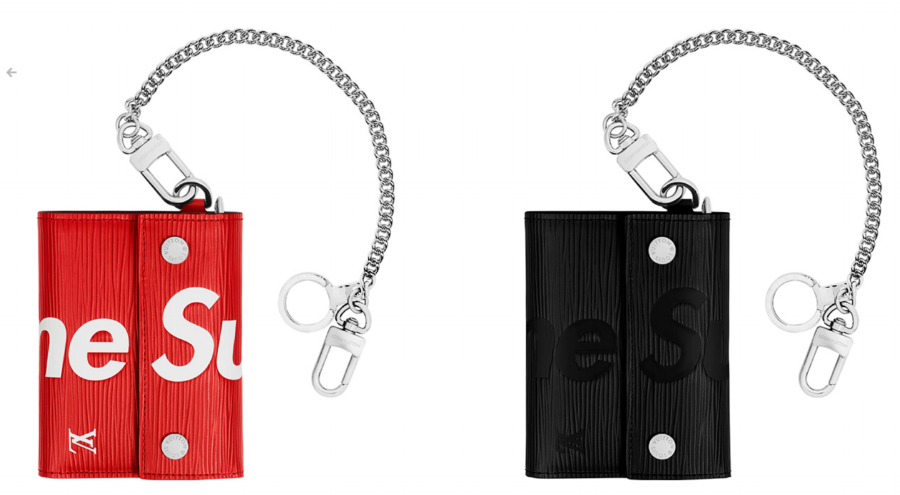
image: LV x Supreme
Louis Vuitton x Supreme collaboration iPhone cases, Kylie Cosmetics lip kits, buzzy Anti Social Social Club wares, and Apple AirPods are among the slew of counterfeit goods available for sale on Amazon, according to a new report from the Guardian. Despite mounting lawsuits against the Seattle-based e-commerce giant and frustrations being voiced by brands ranging from well-known footwear brand Birkenstock to industrial design firm Elevation Lab, “Amazon is rife with potentially dangerous counterfeits and other knockoff goods,” the Guardian report asserts.
In particular, the British publication points to “multiple examples of counterfeit streetwear and accessories, including a Supreme/Louis Vuitton iPhone case and an Anti Social Social Club hoodie and counterfeit Kylie Jenner lip gloss, manufactured by a Chinese company and almost indistinguishable from the real thing” as being available for sale.”
The counterfeit items “were all sold through Amazon’s Marketplace, a long-running feature on the site allowing third parties to use the company’s infrastructure to sell direct to consumers, with Amazon taking a cut of the revenue,” per the Guardian. “Some items, including the counterfeit AirPods, were sold using the ‘Fulfilled by Amazon’ service, which allows independent retailers to ship their products to Amazon, where it stores the items in its own warehouses, uses its own staff to pick and pack them, and ships them using Amazon Prime delivery and Amazon Logistics drivers alongside its own orders.”
This is not the first time that Amazon has been taken to task for the authenticity of its “Sold and Shipped by Amazon” products. In October, Mercedes Benz’s parent company, Daimler AG, filed suit against Amazon.com in federal court in Los Angeles, alleging that the Seattle-based e-commerce giant has engaged in trademark infringement by selling counterfeit Mercedes wheel caps.
In addition to merely setting forth a basis for trademark infringement, the German automaker claimed that Amazon’s model for labeling products as “Shipped from and sold by Amazon.com” amounts to a “fraudulent business act” upon which consumers rely, and enables Amazon to “capitalize upon and profit from Daimler’s [and other brands’] reputation and goodwill.”
The problem, according to the automaker: No shortage of the products listed as “Ships from and sold by Amazon.com” are counterfeit since “Amazon refuses to take reasonable steps to police intellectual property infringement or to source their ‘shipped from and sold by Amazon.com’ products only from authorized manufacturers, wholesalers, and retailers.”
An Amazon representative told TFL that the company “investigates and takes action on 95 percent of all notices of potential infringement received [by way of its internal] Brand Registry within eight hours.” Nonetheless, the Guardian claims that “damaging counterfeiting continues [to take a toll on Amazon’s platform], which is particularly [problematic] for smaller manufacturers who cannot provide the staffing required to monitor the site for fakes on Amazon’s behalf.”
While many brands are adamant that Amazon is not doing enough to prevent fakes from being listed on its website, the company’s bottom line does not appear to be hurting. The Jeff Bezos-owned company revealed last week that its daily revenues had hit a record $550 million per day thanks to its operations, which include everything from its e-commerce platform to web hosting services.











